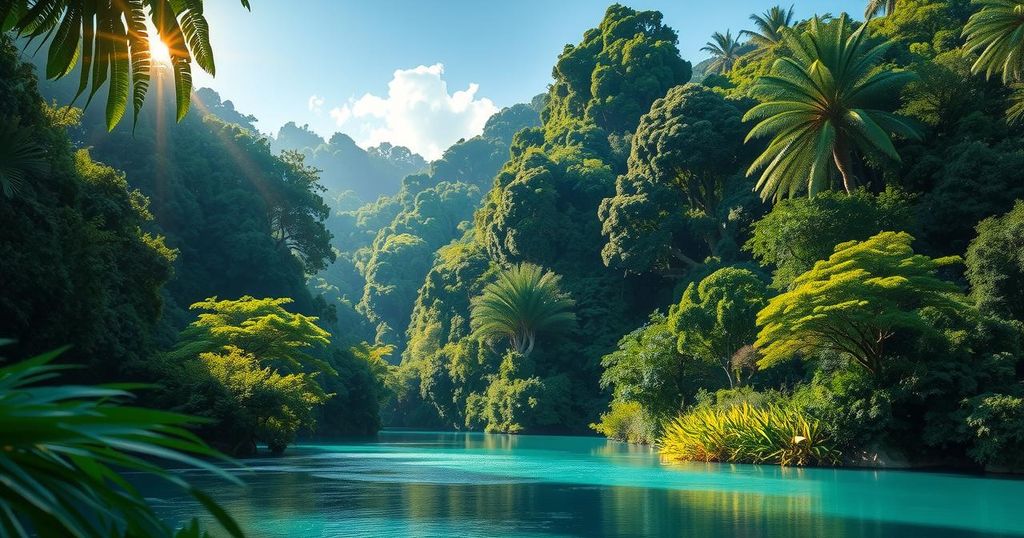Ecuador Faces Environmental Crisis as Oil Slick Disrupts Water Supply
Ecuador is dealing with an environmental emergency following a significant oil spill caused by a landslide that ruptured a major pipeline. The spill has affected five rivers, impacting about half a million residents, particularly regarding access to drinking water. The government is taking measures to recover oil and provide potable water to the affected communities while the long-term implications for fishing livelihoods remain concerning.
Ecuador is currently facing an alarming environmental crisis due to a spreading oil slick that has affected several rivers and left many residents without access to potable water. The crisis began last Thursday when a landslide ruptured a significant pipeline, releasing an estimated 200,000 barrels of oil into the environment, as reported by Esmeraldas Mayor Vicko Villacis. An environmental emergency has been declared as the crude oil spread from the Esmeraldas River to at least four additional waterways.
Approximately half a million people are impacted, particularly in regions that rely heavily on rivers for drinking water. In a swift response, the government has mobilized state-owned Petroecuador, which operates the damaged pipeline, to use tanker trucks for oil recovery from affected areas that depend on fishing for their livelihoods. Efforts are underway to quantify the total amount of oil spilled, with estimates suggesting up to 200,000 barrels have been released.
Starting Tuesday, three ships will deliver clean drinking water to the Esmeraldas region as part of the emergency response measures. The ruptured pipeline is part of the Trans-Ecuadorian Pipeline System (SOTE), capable of transporting 360,000 barrels of oil per day, highlighting the significance of this incident not only for the environment but for Ecuador’s economy. Notably, Ecuador produced approximately 475,000 barrels of oil daily in 2024, making oil production one of its primary export commodities.
In Rocafuerte, a local fishing village, residents expressed their concerns as boats and nets became coated in black oil. Local resident Luis Cabezas remarked on the dire implications of the spill for their fishing activities, emphasizing that if the situation persists, their livelihoods will be severely threatened. Immediate attention and long-term solutions are crucial to addressing the fallout from this environmental disaster.
In summary, Ecuador is grappling with a significant environmental emergency due to an oil spill caused by a landslide that ruptured a valuable pipeline. This incident has severely impacted local communities, especially by disrupting access to drinking water and endangering fishing livelihoods. The government’s response has included declaring an emergency and mobilizing resources to mitigate the effects, but immediate and sustained efforts are essential to restore affected ecosystems and community resilience.
Original Source: www.france24.com




Post Comment